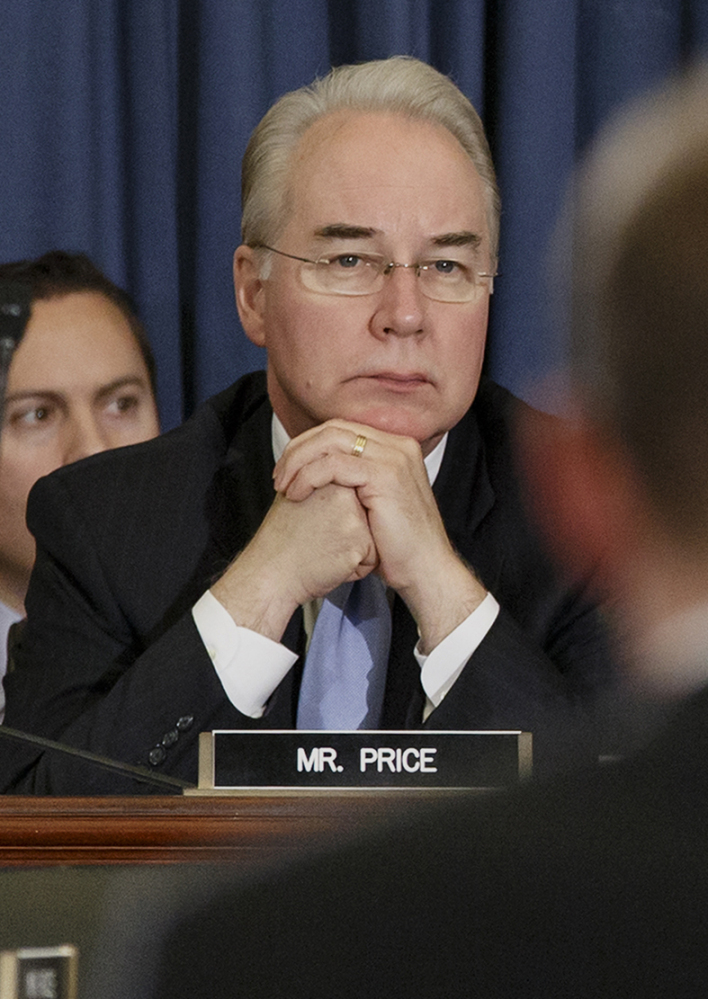WASHINGTON — The incoming Republican chairman of the House Budget panel says he’s going to follow outgoing chairman Paul Ryan’s lead by drafting a fiscal blueprint that would balance the budget in 10 years and call for transforming Medicare into a system that places future retirees in private health insurance plans.
Rep. Tom Price, a Georgia surgeon representing the district Newt Gingrich once did, said the so-called premium support plan for Medicare, which would provide voucher-like subsidies for seniors to buy health insurance instead of the fixed benefits offered by the current system, is “settled policy” among Republicans controlling the House.
Price told reporters Friday that top Republicans haven’t decided whether to use a special filibuster-proof budget bill to repeal so-called Obamacare or cut spending elsewhere in the budget.
Price succeeds Ryan, R-Wis., who became a national political figure as the 2012 GOP vice presidential nominee. He also has a more difficult challenge than Ryan, who passed his nonbinding budget plan for four straight years in largely the same form but never followed up with the more challenging task of trying to implement the plan.
The task is more difficult this year because reaching a budget compromise with the new GOP-controlled Senate is thornier than simply reaching consensus among House Republicans.
The arcane congressional budget process involves passing a nonbinding budget resolution, which sets the broad parameters for follow up bills setting agency operating budgets and curbing spending on autopilot benefit programs such as welfare, Medicaid and student loan subsidies. The budget resolution and follow-up measures known as reconciliation bills are the only legislative vehicles that can’t be filibustered by the minority party in the Senate. Only one such measure can be used each year to cut spending.
Price acknowledged the temptation to use the filibuster-proof process to deliver a measure largely repealing the Affordable Care Act to President Barack Obama’s desk or to use the “finite number of arrows” to go after spending elsewhere in the budget.
Price said he wants the GOP budget to lead to “the greatest amount of opportunity to the greatest number of Americans.”
Price also said he wants to overhaul the budget process to allow congressional scorekeepers to take into account the economic feedback that policy changes have. Under such “dynamic scoring,” tax cuts or a reform of the complex tax code would cost less because they spur economic growth.
Price did not say whether he favors retaining Doug Elmendorf as director of the nonpartisan Congressional Budget Office. Elmendorf was appointed by Democrats and his term expires in January.
Send questions/comments to the editors.



Success. Please wait for the page to reload. If the page does not reload within 5 seconds, please refresh the page.
Enter your email and password to access comments.
Hi, to comment on stories you must . This profile is in addition to your subscription and website login.
Already have a commenting profile? .
Invalid username/password.
Please check your email to confirm and complete your registration.
Only subscribers are eligible to post comments. Please subscribe or login first for digital access. Here’s why.
Use the form below to reset your password. When you've submitted your account email, we will send an email with a reset code.